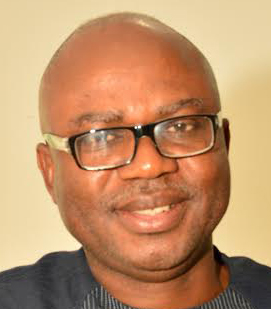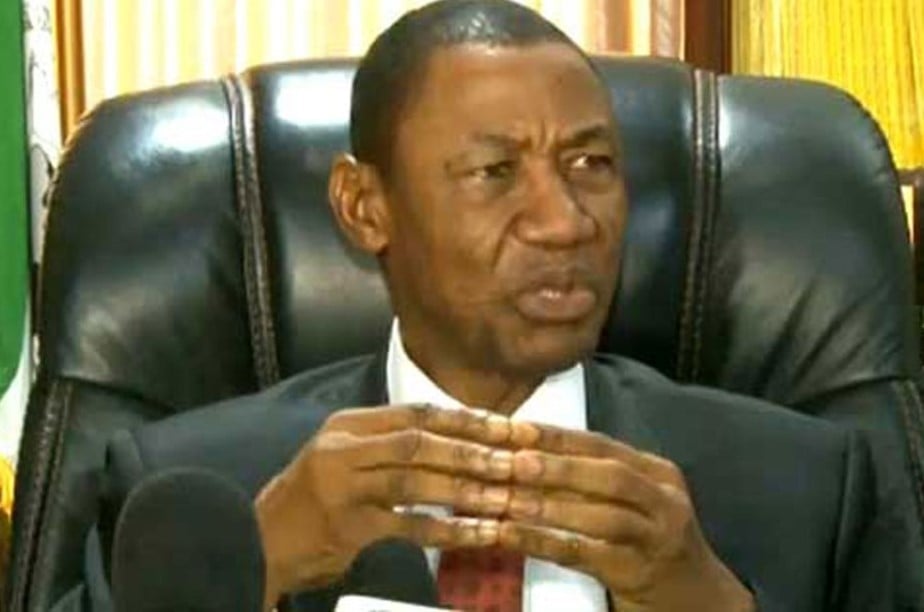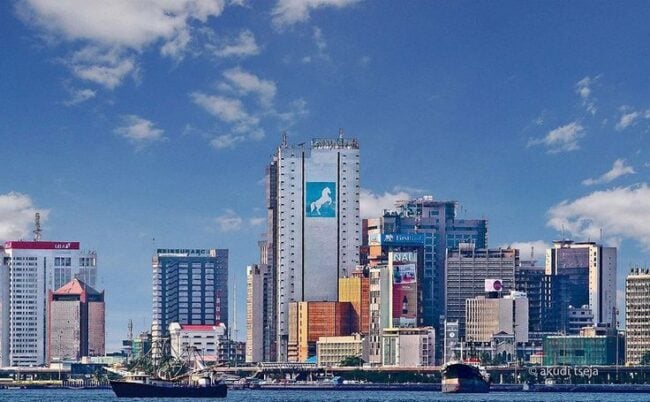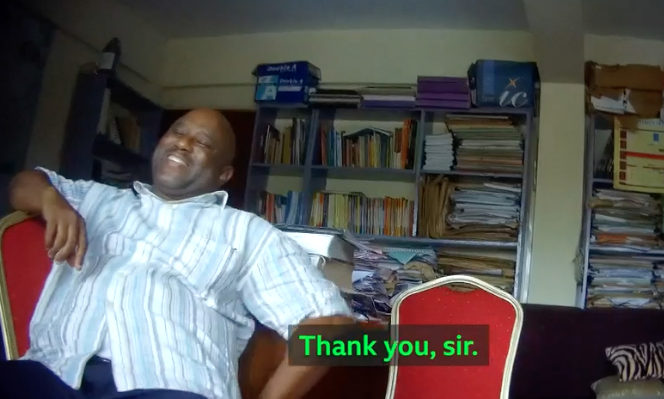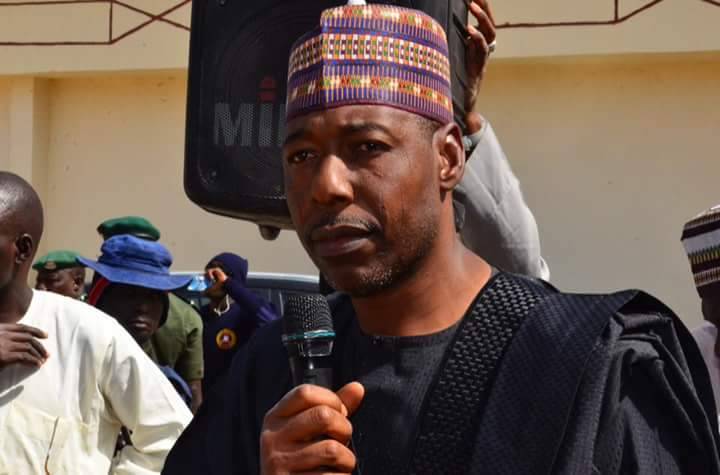Six months after President Buhari signed the new minimum wage bill into law, “organised labour” has threatened to embark on a nationwide strike next week if the government “fails to reconvene the meeting of the committee negotiating the consequential adjustment on the new minimum wage”. So, the contest is not yet about payment of a new wage but about meetings! Haven’t we passed this road several times before?
Labour unions couldn’t be trusted even in the days of Adams Oshiomhole as Nigeria Labour Congress president. Now it’s doubtful if an organised labour exists in a true sense: the United Labour Congress (ULC) has become a reluctant ally of the NLC or Trade Union Congress (TUC), an alternative rather than an affiliate. And some so-called affiliate unions now operate on their own without the NLC or TUC’s cover. They strike at will and demand the sack of chief executives of ministries, departments and agencies who refuse to play ball with them and their collaborators.
When you hear that the CEO of a government agency is being probed or has been removed, you don’t need to be excited. The accusation usually levelled against victims is either an unproven act of corruption or failure to offer better working conditions for workers. Behind the façade, however, are the unseen hands: politicians seeking to plant their cronies, contractors bankrolling a union to help remove obstacles to their sharp practices, or some members of top management of the same agencies aspiring for control.
That these unseen hands almost always succeed in achieving their aims, no matter how skewed, even by employing the services of anti-graft operatives and top public servants, must rank as one of the wonders of Nigeria. Let me illustrate this steady travesty of justice and the dishonesty of some labour leaders with my own recent experience with the Investments and Securities Tribunal (IST) whose chairman, Barrister Siaka Idoko-Akoh, was purportedly removed penultimate Thursday.
Advertisement
Long before his appointment as IST chairman, two years ago, our company had done a media-related job or two for the tribunal. In November 2017, I submitted a quotation to IST, as I occasionally did to some agencies. For about a year thereafter, I didn’t set foot on the premises of the IST now in the Jabi district of Abuja or receive any correspondence from the organisation. But one morning in February, this year, I received a call from one Lizzy who identified herself as a staff member of the Economic and Financial Crimes Commission (EFCC).
“EFCC?” I asked in surprise. “What have I got to do with EFCC?”
She politely informed me that they needed information from me and that a letter inviting me to the commission’s office had been sent to our office in Garki. I didn’t receive the letter because it was a marketing office we’d vacated. There and then, I asked for Lizzy’s WhatsApp number and she posted a copy of the letter to me.
Advertisement
On the appointed day, February 26, I travelled to the EFCC headquarters in Jabi for the first time. I couldn’t reach my friend, EFCC spokesman Wilson Uwujaren, on the phone when I wanted to know what business the commission had with me that day. It was after I was ushered into Lizzy’s office on, I think, the third floor of the imposing edifice that I knew the invitation was in relation to IST and the quotation I had even forgotten I submitted.
They literally forced me to write my biography in long hand. I confirmed photocopies of the documents I’d submitted to the IST and answered probing questions about the “contract”. In the end, I guess, they were satisfied my company wasn’t offered any job nor did it receive a kobo from IST following the quotation we’d submitted. All through the three or four hours I spent there, they couldn’t offer me tea or coffee. Not even an eggroll.
It was obvious the labour leaders of IST had lifted and photocopied our documents in the office file and handed to the EFCC, perhaps to prove that IST was funneling money to a non-existing company or a crony. I later learned they also reported other companies that submitted bids. Yet, they knew the tribunal hadn’t awarded a contract or paid money to anyone – their kingpins and sponsors likely are in the accounts department of IST.
As I angrily left the EFCC premises that day, I kept wondering what manner of investigations the anti-graft body conducted. Why listen to vendetta-seeking workers and their agents without sighting any shred of evidence that money was paid? If a contract had been awarded or cheques paid, wouldn’t there be approval letters or photocopies of cheques or other evidence of the transactions? I would have written a column on that matter that week. But because Lizzy had not deeply offended me, I declined to pillory the EFCC whose activities we’ve always reported on Eyeway.ng and other media. One day I sent a WhatsApp message to Lizzy, jokingly asking her whether they’d caught the “thieves” at IST.
Advertisement
I met Idoko-Akoh for the first time in my life only last month, but I have read news stories about IST and agitations by the in-house branch of the Amalgamated Union of Public Corporations Civil Service Technical and Recreational Services Employees (AUPCTRE). I’ve learned that some union members helped to destroy and replace the key to his office just a few hours after the “sack” letter was received at the IST headquarters.
So, that’s our country for us. Was Idoko-Akoh really under an investigation? Was it the one presumably conducted by the EFCC? Or was the Ministry of Finance also investigating him? If it did, what were its findings?
As the story goes, however, the permanent secretary of the finance ministry, Dr Mahmoud Isa-Dutse, in concert with labour union agitators, authored a letter claiming that he has removed Idoko-Akoh on the directive of the State House with immediate effect. For a casual worker without any condition of service, this kind of sack order may suffice. But certainly not for a head of a tribunal that is equivalent to a high court in Nigeria, and not for its chairman whose five year tenure is secured with legal provisions. What does “Mr. President”, whose directive was purportedly conveyed by permanent secretary Isa-Dutse, know about all these?
In June, I read that AUPCTRE had picketed the headquarters of IST over the management’s failure to meet agreements reached in February 2018. They appealed to the ministry to compel the chairman to respect the 2018 agreement and also step aside from office while he was being investigated.
Advertisement
All things considered, the IST chairman’s removal is a shameful national scandal that must not be allowed to stand. It’s not just that Idoko-Akoh was visited with grave injustice, it’s more so because certain individuals at the corridors of power have shown that they don’t care about the national interest, rule of law and an orderly and equitable Nigeria. Under the act establishing the tribunal, the chairman “shall hold office for a term of 5 years renewable for another term of 5 years and no more”; and he is removable if “he is convicted of a felony” or found “guilty of serious misconduct in relation to his duties”, among others.
The short letter signed by the permanent secretary has no basis in law or the civil service rules. No infraction or crime was given as a reason for his sack – nothing except “the approval of Mr. President for your removal from office”. And he was directed to hand over his office “including all property(ies) of the IST in your custody to Mr. J. I. Udunni…who by the same letter from the State House has been appointed as Acting Chairman of the IST”.
Advertisement
More questions begging answers: can the permanent secretary, who himself is not a civil servant but was brought into the service based on his relationship with the president, usurp the powers of the secretary to the government of the federation, chief of staff to the president or the principal secretary to the president to remove appointed public officers allegedly on the approval of the president? If the removal was done on the basis of a directive from the State House, why wasn’t the reference number of the directive cited to authenticate it?
This certainly goes to show the extent those who see themselves as close allies of the president could go to abuse the rule of law on his behalf. Whether the permanent secretary knows that there is a law establishing the tribunal and procedures to remove its members from office is unclear. But his action has shown that he does not know and does not care to know.
Advertisement
When I watch Nigerians constantly lamenting how Malaysia borrowed palm seeds from Nigeria in the 1970s but started exporting palm oil to Nigeria from the 1990s till date, I just laugh because much more damage is being done today to permanently endanger the future of this country.
The IST, a specialized court still at a formative stage and grossly underfunded, has been hailed as a model for quick resolution of business cases, thereby encouraging both local and foreign investors to come into Nigeria. But now the political wayfarers and powers that be appear determined to rubbish all that. In the four years of the Buhari administration, four people have headed the tribunal in what the Vanguard refers to as “one year one chairman tribunal”. How can foreign investors trust us with their hard-earned money when government officials wilfully destroy the confidence-building mechanisms put in place?
Advertisement
Idoko, from Kogi State, retired from the Securities and Exchange Commission as a director in 2006. He was appointed IST chairman in 2017 along with nine other members after the tribunal was left for two years without any activity – and that was because the same Federal Ministry of Finance bought the rumour that billions of naira were embezzled by the then chairman.
The situation at IST is typical of what happens in many other federal bodies I know: constant fights over who controls money; attacks on non-compliant CEOs, non-productive workers who use “labour unions” or are used by external forces to install the person who signs the cheques; false accusations, unfounded and uninvestigated claims meant to give the dog a bad name in order to hang it.
Just as AUPCTRE members in IST appear to have had their way effortlessly, I believe the larger NLC or TUC can, when incited, get any minister of their choosing sacked. All it takes is for a cabal or a contractor to get the labour leaders’ ear. Idoko-Akoh may have been humiliated to the cheers of his traducers and accomplices but certainly the courts should have the final say on it.
In the current matter of minimum wage, however, the unions are simply toothless. What’s more, the leadership of labour has a price! I’m sure they’re already aware of the delay tactics being employed by government. They may not even declare a strike after October 16 because it costs nothing to reconvene a meeting of the committee they requested. But, as I’ve stated in the past, the minimum wage may never be paid – at least not in upwards of 30 states – and the “negotiations” might stretch to 2020 and to the commencement of a possible naira devaluation era.
Nwamu, an entrepreneur, is the CEO of Eyeway.ng
+234-8054100220 (SMS/WhatsApp only)
Views expressed by contributors are strictly personal and not of TheCable.
Add a comment
